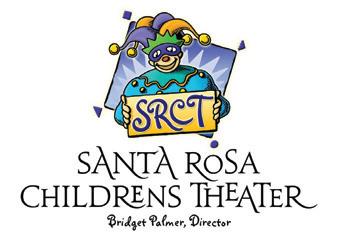
6 minute read
Sleep When the Baby Sleeps
Sleep When the Baby Sleeps 7 Secrets to Postpartum Recovery
Throughout your pregnancy, you eat the right foods, drink plenty of fluids, rest and try to keep stress to a minimum. You might think that you can relax your self-care regimen once your baby arrives, but caring for yourself should remain a top priority to ensure the health of both of you and your child. By Christa Melnyk Hines
Drink plenty of water. “The key to optimal recovery after delivery is fluid hydration with water,” says Gina Petelin, MD. “This is important for replenishing your body after significant fluid losses.” Nourish yourself. Before the baby arrives, assemble healthy meals and stash them in your freezer. In the midst of caring for a newborn, you’ll be less likely to eat poorly when you can quickly pop a nutritious, ready-made meal into the oven or crockpot. Also, stock up on protein-packed snacks to keep your energy up, especially if you plan to breastfeed. Choose simple, healthy snacks, such as cheese sticks, almonds, rotisserie chicken, yogurt, and energy bars. Consult with your physician to determine how many extra calories you should be consuming each day according to your weight and activity level, including breastfeeding. Sleep when the baby sleeps. “Those first days home from the
hospital, rest, rest, rest, and spend as much time skin-to-skin with your baby as you can,” says Teresa Marshall, a birth and postpartum doula. “This will truly make for a smoother transition for baby from womb to room and for mama, as well.” Tricia Walania, a postpartum emotional support program coordinator, says that rest is one
of the best ways you can care for yourself. “Being rested helps you cope more effectively with both physical and emotional changes,” she says. Unable to catnap? Relax with your eyes closed. Integrate gentle exercise. Many moms are surprised that they still look pregnant after delivery. Don’t panic; that’s normal, Petelin says. Although the uterus decreases in size right away, you will still appear to be about five months pregnant when leaving the hospital. By following a healthy diet and exercising according to your doctor’s instructions, you’ll get back to your pre-pregnancy body. Many moms enjoy group exercise activities, such as “mommy and me” yoga and Fit4Mom, which offer companionship with other moms.
Walking is also beneficial. A stroll around the block on a sunny day is not only good exercise, but also does wonders for your emotional well-being and gives you a boost of vitamin D. Take extra care if you’ve had a cesarean; gradually increase your activity level only according to your doctor’s instructions. Current recommendations include no driving the first two to three weeks postpartum and, for the first six weeks, no lifting anything that weighs more than 15 pounds. Expect hormonal changes. Many new moms feel overwhelmed, tired, anxious, tearful, or mildly afraid to ask for help or just a visit,” Marshall says. Often friends and family members are eager to assist by holding the baby or watching siblings so you have a chance to nap, shower, or run an errand. “You have to take care of yourself in order to be able to take care of your baby,” Walania says. While social media can help you feel connected to the outside world, nothing can quite replace

depressed. “Exhaustion, hormonal changes, and isolation after the birth of a baby may lead to what is referred to as ‘baby blues,’” Walania says. “To some degree this happens to everyone. It’s natural and not permanent.” Anxiety and depression can also be linked to thyroid issues, and low levels of iron and vitamin D. Talk to your doctor if symptoms persist for more than two weeks. Sometimes hormonal shifts can lead to postpartum depression, a serious mood disorder that can manifest as suicidal thoughts. See postpartumdepression.org for more information. The National Suicide Prevention Hotline is 800-273-8255. Tap your village. “I would recommend reaching out. Don’t be a deeply satisfying conversation with a friend or a warm hug. Get together for coffee, lunch, or a walk. If your network feels inadequate, join a mothers’ group or look for parent-child gatherings in your neighborhood through Meetup.com.
The sooner you seek support, the faster you can start feeling like yourself again.
Nurture your spirit. You may be a mom now, but you aren’t only a mom. Take time to do the things that have always brought you personal fulfillment and joy, whether that’s crafting, relaxing in a warm bath, browsing at a boutique, or lunching with a friend. When you are happier and healthier, your baby will be, too. ¶
Christa Melnyk Hines is a nationally published writer. She and her husband are the parents of two boys.
HEY MOM GIVE US A SHOUT! We want to know what you think. • What did you like? • What didn’t you like? • What subjects would you like us to cover? • Got any local story ideas?
e-mail melissa@family-life.us

FREE





Family Expo & Camp Fair
FRIDAY APRIL 17 3-7 P.M. AT CODDINGTOWN MALL, SANTA ROSA
FIND YOUR PERFECT CAMP! WIKIUP
RECREATION & PARKS


CLUB
Family Expo & Camp Fair


6th Street Playhouse Art and Soul Music School Bernstein Orthodontics Classroom Safari Cloverleaf Ranch Camp Compass Charter Schools Costco En Garde Fencing Academy EXCEL for Youth Green Music Center Sonoma Humane Society Ignite Martial Arts Instilling Goodness McDonald Ranch Camp Mountain Mike’s Pivot Charter School Renewal by Andersen Santa Rosa Children’s Theater Santa Rosa Recreation & Parks Shotokan Karate Sonoma County YMCA Sonoma County Department of Children’s Services Sonoma County Radio Amateurs Santa Rosa Symphony Camp Strides Riding Academy Villaggio Dental Westminster Woods Camp Wikiup Tennis & Swim Club l ook wh o’s coming















